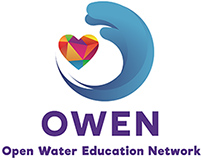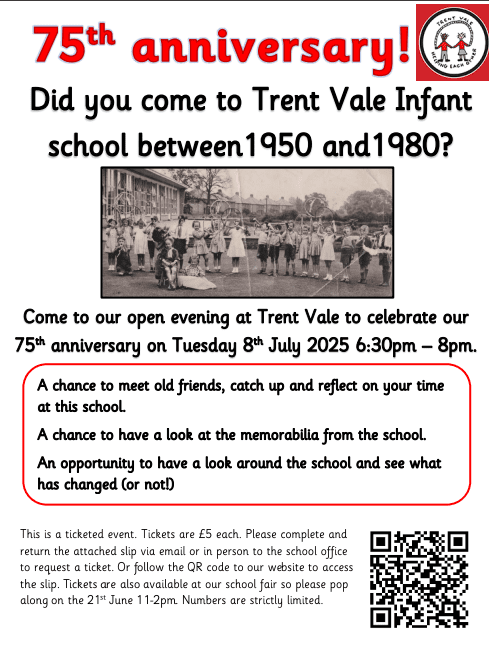Safeguarding Overview
Safeguarding Information for Parents
Our Safeguarding Statement
At The Trent Rylands Federation, there is nothing more important to us than the physical and emotional health and well-being of our pupils and staff alike. We recognise that everyday we are trusted with the most precious members of our families. As such we have created and work hard to maintain a climate in which staff, pupils, parents and governors feel able to articulate concerns comfortably; safe in the knowledge that effective action will be taken, as appropriate.
Our Safeguarding and Child Protection Policies apply to all adults, including volunteers, working in or on behalf of our School. We expect everyone working in or for our School to share responsibility for keeping children safe from harm and abuse and report any concerns to one of our Designated Safeguarding Leads (DSLs). Together we must ensure that all children, their families and our staff, feel safe, valued and cared for at all times and are nurtured to thrive and achieve to be the best we can be.
We welcome volunteers, including parents, into our School and at all times ensure that volunteers are suitable to work with children. Those who volunteer to spend time with our children on a regular basis are required to undergo a DBS check.
The Trent Rylands Federation, children are taught about how to stay safe, including staying safe online. Our taught curriculum and programme of assemblies covers how to stay physically and emotionally healthy and includes e-safety and age-appropriate sex and relationship education (SRE). NB: Parents of older children, who undertake specific units of work on puberty and sex education, will be informed before the teaching takes place and will be invited to view any materials we plan to use.
Trent Vale Infant and Nursery School
Our designated person for child protection at Trent Vale is is our Head Teacher Mrs Barratt .
Additional Designated Persons are:
Mrs Osborne (Federation Deputy Head Teacher) and Miss Gough ( SENCo).
Beeston Rylands Junior School
Our designated person for child protection at Beeston Rylands is is our Head Teacher Mrs Turner.
Additional Designated Persons are:
Mrs Osborne (Federation Deputy Head Teacher) and Miss Harby.
Designated Governors – Alistair McPherson and Lisa Shepherd.
IF YOU ARE CONCERNED ABOUT THE SAFETY OR WELFARE OF YOUR CHILD, OR A CHILD YOU KNOW, YOU SHOULD ACT WITHOUT DELAY
You can ask for advice or report your concern to:
Children, Social Care Police
Tel: 0300 500 80 90 Tel: 101 or 999 (in an emergency)
Out-of-hours Duty Team NSPCC Child Protection Helpline
Tel: 0300 456 4546 Tel: 0808 800 5000
People worry that their suspicions might be wrong, or that they will be interfering unnecessarily. If you wish, you can telephone for advice without identifying the child. If the conversation confirms that you are right to be concerned you can then give the child’s details. You will be asked for your name and address too, but the agencies will take anonymous calls, so if you really do not want to say who you are, you do not have to. Remember, it is always better to be safe than sorry.
Child abuse and what to look for:
No parent wants to think about the possibility of their child becoming a victim of abuse, and most children are never abused. Even so, it is important for parents to be aware of the possibility and to know that help is available if the unthinkable does happen.
Although there is always a lot of media focus on ‘stranger danger’, the abduction of children is rare and the threat from strangers is quite small. You should still ensure that your child knows the rules about keeping safe when they are out alone.
Most children know their abusers. They may be family members or friends of family, someone who works with the child or someone who lives in the community.
There are four types of abuse: physical, emotional and sexual abuse and neglect.
There are many signs, or indicators that a child might be suffering abuse. There may be injuries, but it is more likely that you will notice some change in your child’s behaviour.
If you notice anything that concerns you, talk to your child to see if you can find out what is happening. Remember that, if your child is being harmed, she or he may be too frightened to tell you. If your child becomes distressed or you are not happy with the explanations, you could talk to an adult you trust or call a helpline or children’s social care services. Our designated person at school will also try to help.
The NSPCC offers information on types of child abuse and how to spot the signs . Please click the link below
https://www.nspcc.org.uk/what-is-child-abuse/types-of-abuse/
You will also find more useful information in the school’s child protection policy and anti-bullying policy in the ‘Joint ’ section of the website.
What we will do if we have a concern about your child
If we are concerned that your child may be at risk of abuse or neglect we must follow the procedures in our child protection policy. You can look at the policy in school, or receive a copy to take home. Please just ask at the Office.
The procedures have been written to protect all pupils. They comply with our statutory responsibilities and are designed to support pupils, families and staff. The procedures are based on the principle that the welfare of the child is the most important consideration.
In almost all circumstances, we will talk to you about our concerns and we will also tell you if we feel we must refer our concerns to children’s social care. We will ask your consent to make a referral, but in some circumstances, we may need to make the referral against you wishes. We will only do this if we genuinely believe that this is the best way to protect your child, and the fact that you did not consent to the referral will be recorded.
If we think that talking to you first might in some way increase the risk to your child, we will report our concerns to children’s social care and take advice from them. We will normally tell you that a referral is being made and we will record the reasons why we decided to follow this course of action.
All child protection records are kept separate from your child’s general school file. Records are stored in a locked cabinet or drawer, or they are stored electronically using a system called CPOMS . They only staff who have access to the records are those who need to know about the concerns in order to protect and support your child.
You can ask to see what information is held on your child, and we will normally agree to this, but if we are unsure we will seek advice from the local authority designated officer or children’s social care first.
Child protection is a very sensitive issue and it raises many questions and a range of strong emotions. We will do everything we can support our pupils.
To access our Child Protection Policies please click on the link below https://www.trentrylandsfederation.com/federation-values/policies/safeguarding/
Please Click below to access further information
https://nscp.nottinghamshire.gov.uk/resources/for-parents-and-carers/
Online Safety
At The Trent Rylands Federation we take e-safety very seriously. Using computers and technology is an increasingly important skill and understanding how to do so safely is a vital part of everybody’s education: children, parents and staff alike.
Whenever new advances occur, information and advice will be offered via these pages to help support your child’s education and perhaps provide parents with some useful information that you didn’t know already!
Whilst we see every day as being ‘Safe Internet Day’, we also celebrate the national Safer Internet Day in February too. We study this in more detail in Computing lessons and also discuss it in classes too.
Please click the link below to access our E Safety Page of information. This is updated regularly.
https://www.trentrylandsfederation.com/federation-values/policies/e-safety/
Water Safety
Water Safety is especially important in our area, following tragic accidents in recent times around Beeston Weir, the River Trent and the Nottingham and Beeston Canal.Would you know what to do if someone you were with fell in and was struggling to get out?
SHOUT – CALL 999 – SIGNAL – THROW – DO NOT GO

The Open Water Education Network is based in Beeston, and was set up following a tragic accident in our local waters. Their website offers lots of advice on how to stay safe around water, and what do do if someone is in trouble.


